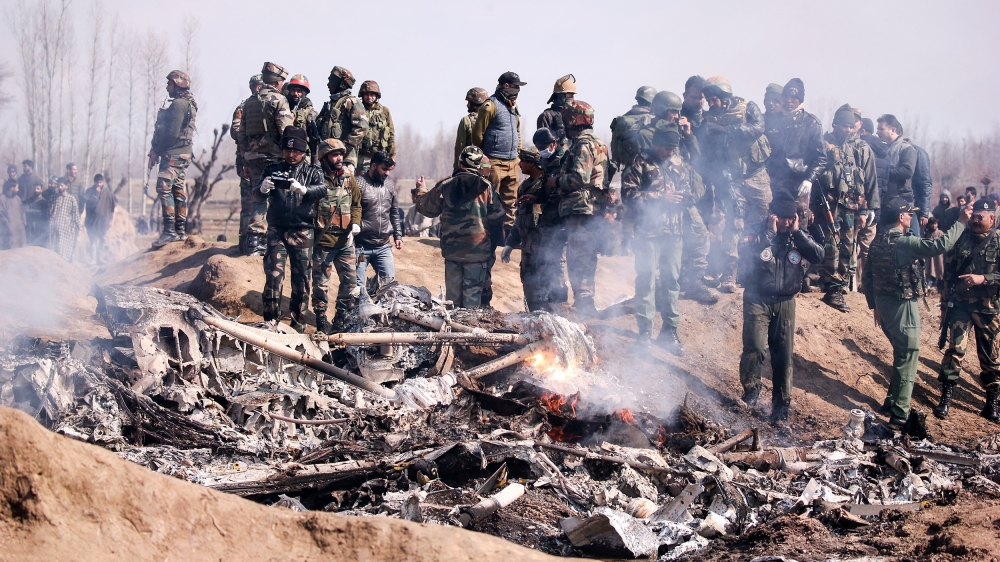Home » India Pakistan tensions at highest level in decades over tit-for-tat air raids
India Pakistan tensions at highest level in decades over tit-for-tat air raids


Relations between India and Pakistan are under extreme pressure today with security personnel on high alert and airspace restricted after a string of violent escalations over the past 48 hours.
On Tuesday, 12 Indian Air Force Mirage 2000 aircraft struck a purported militant training camp in Pakistani-administered Kashmir.
Overnight, the two sides exchanged artillery and small arms fire across the Line of Control, killing a number of civilians.
On Wednesday, Pakistan announced that it had retaliated by bombing a “non-military” target inside Indian-administered Kashmir. Unconfirmed reports suggest that one Pakistani F-16 was shot down during this raid. Shortly after, Pakistan downed two Indian Air Force aircraft, arresting one pilot who landed in Pakistani territory, while another who landed in Indian territory died in the crash.
The alarming escalation is the first time that nuclear powers have ordered air raids against one another. This suggests that nuclear deterrence appears not to be operating conventionally. As such, there is a possibility that Pakistan—which possesses inferior conventional military capabilities—could draw attention to its tactical nuclear weapons or conduct a public weapons test to bring the nuclear dimension back into focus.
More likely, however, is a calibrated climb down. Both sides have attempted to douse tensions; India’s foreign minister says Delhi “does not wish to see further escalation”, while Pakistan’s PM has called for talks. Given this—and given that both India and Pakistan can claim victory to their populations in the tit-for-tat strikes—there is a substantial chance that tensions will drop from a boil to an intense simmer in the coming days.
Wake up smarter with an assessment of the stories that will make headlines in the next 24 hours. Download The Daily Brief.
Simon is the founder of Foreign Brief who served as managing director from 2015 to 2021. A lawyer by training, Simon has worked as an analyst and adviser in the private sector and government. Simon’s desire to help clients understand global developments in a contextualised way underpinned the establishment of Foreign Brief. This aspiration remains the organisation’s driving principle.

